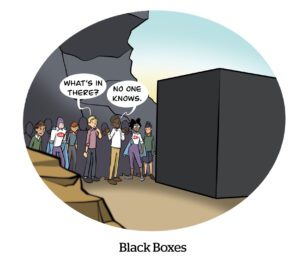Spring Into Action
Magnite’s acquisition of the SpringServe ad server in 2021 and its subsequent investments demonstrate the importance of merging an SSP with an ad server for streaming video.
Trey Titone, NBCUniversal’s VP of product for programmatic demand, has a useful blog post on Ad Tech Explained documenting Magnite’s evolution.
Take pause ads, which are all the rage right now.
Rather than having to go through the Sturm und Drang of finding a DSP, ad server and broadcaster willing to test the new format, which is a lot of work, Magnite was able to simply ship self-serve pause ads on its own.
Having its own in-house buying platform also comes in handy for managing live events, which can throw off programmatic QPS filters. Magnite is now working on a forecasting tool to help with scaling and pacing.
It’s interesting to take a step back and note that SpringServe had a history of supporting both buyers and sellers, just as Magnite now uses it as the tech that undergirds ClearLine, Magnite’s direct-to-buyer product.
SpringServe was once a subsidiary of YellowHammer Media Group, a buy-side ad tech and agency business.
Agonizing Over AI
Generative AI tools will democratize content generation, similar to how smartphones allow anyone to become a YouTube creator, Alphabet CEO Sundar Pichai tells The Verge. He adds that the number of webpages Google crawls has grown by 45% over the past two years.
But what does Google’s AI-fueled shift mean for publishers and advertisers?
Well, an internet filled with AI slop sounds like a brand safety nightmare – and it could hasten the buy side’s retreat from the open internet and toward walled gardens and curated deals.
Legacy publishers, meanwhile, aren’t thrilled with Google, to say the least. After Google recently expanded its AI Mode to give all US users access to a chatbot-enabled search engine, The News/Media Alliance’s Danielle Coffey blasted the decision as akin to “theft” for robbing publishers of traffic.
Pressed on Coffey’s comments, Pichai tells The Verge that Google’s AI is committed to citing sources. He also says Google’s AI search sends traffic to a wider range of publishers. Google execs inexplicably repeat this claim, though it’s plainly untrue. (All empirical and anecdotal evidence points to AI search sending less traffic to fewer publishers.)
Still, other AI platforms openly remove publishers from the equation, whereas Google “agonize[s]” over it, Pichai says. So at least there’s that.
Tattle-Tale Claude
Generative AI search startup Anthropic found itself in hot water when a technical report about its recently updated model, called Claude Opus 4, noted that “egregious wrongdoing” by a customer might be shared with law enforcement or the press.
The example cited in the company’s documentation is of a hypothetical pharmaceutical fraud being auto-reported to the SEC and ProPublica.
How do Anthropic customers feel about the new “tattle-tale mode,” as The Information puts it?
Undisturbed, apparently. This is an edge case and relates only to experimental partners using a version of the tech that isn’t yet commercially available.
But this development points to the brave new world of AI chatbots, which are trying to sink their hooks into people’s emails, apps and personal tech.
For instance, Google’s new souped-up AI assistant, called Astra, proactively makes purchases, gives reminders and completes tasks because it can see your email, calendar, messages and web browsing.
That’s like putting out a bat call to bad actors who can trick an AI by sending an email with, say, a fake purchase reminder. Brave new world, indeed.
But Wait! There’s More
What VaynerMedia’s John Terrana wants you to understand about attention. [AdMonsters]
Apple claims the App Store has blocked $4 billion in fraudulent transactions over the past year. [TechCrunch]
Former Meta executive Nick Clegg – who also happens to be a former UK deputy prime minister – says requiring artist and author consent for scraping content to train AI models would kill the AI industry. [The Verge]
Democratic strategists launched a $20 million effort called “Speaking with American Men: A Strategic Plan” that recommends placing ads in video games, among other methods for reaching young men online. [NYT]
Video game publishers EA and Take-Two warn of reputational risks for companies that use generative AI against consumer wishes. [Bloomberg]
The Washington Post is offering buyouts to all employees with at least 10 years of tenure, as well as employees in the video department, on copy desks and in the opinion section. [Business Insider]
You’re Hired!
SafeGuard Privacy appoints Andy Hepburn as general counsel. [release]
Thanks for reading AdExchanger’s daily news round-up… Want it by email? Sign up here.















